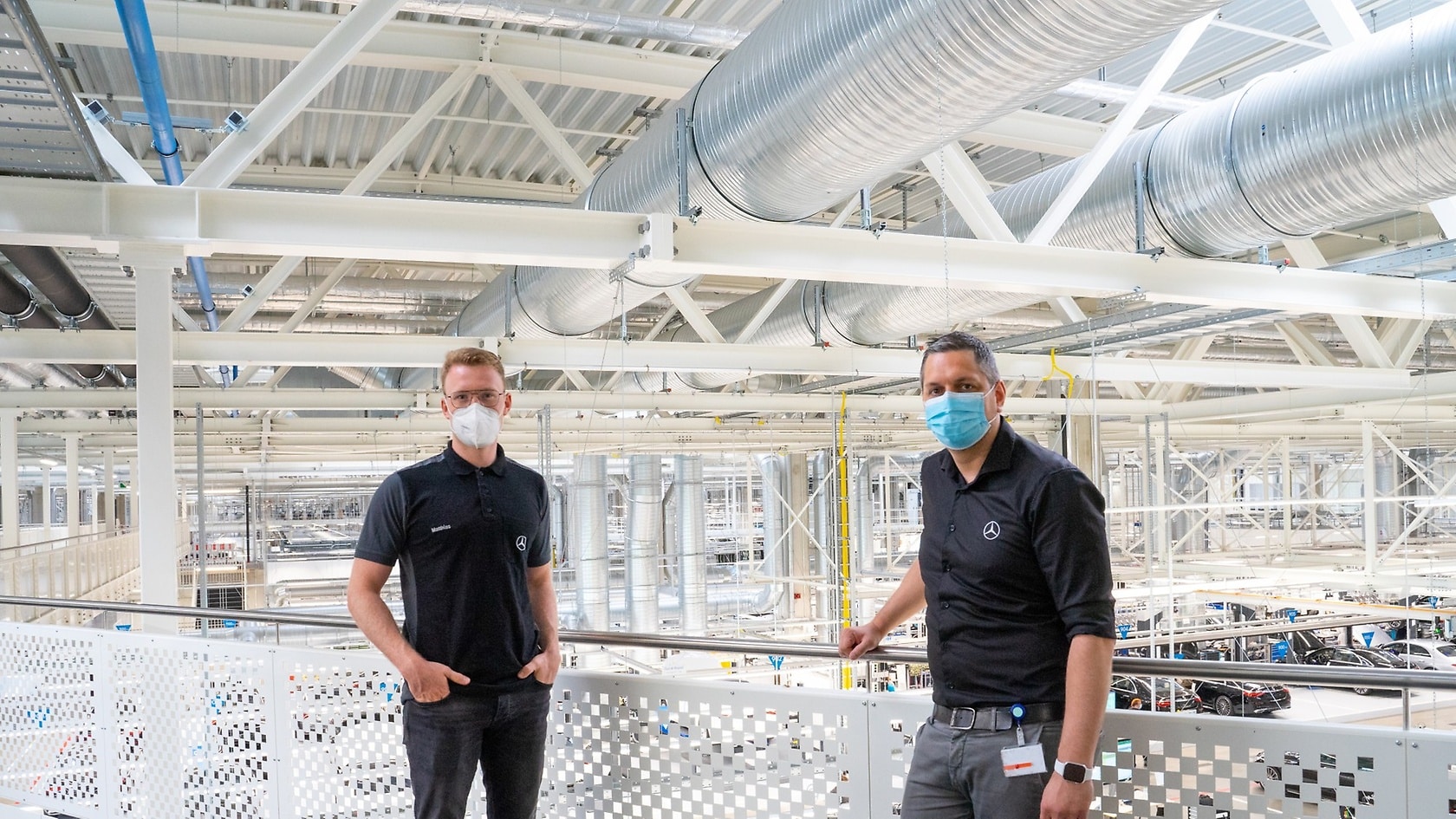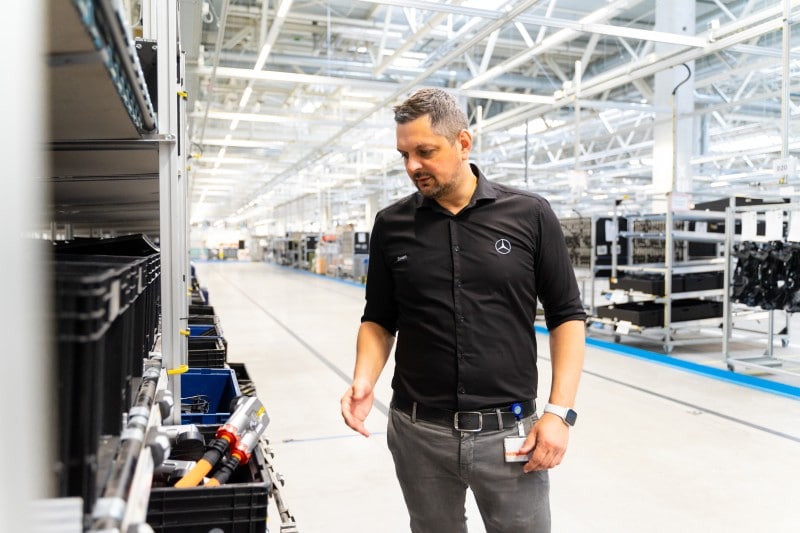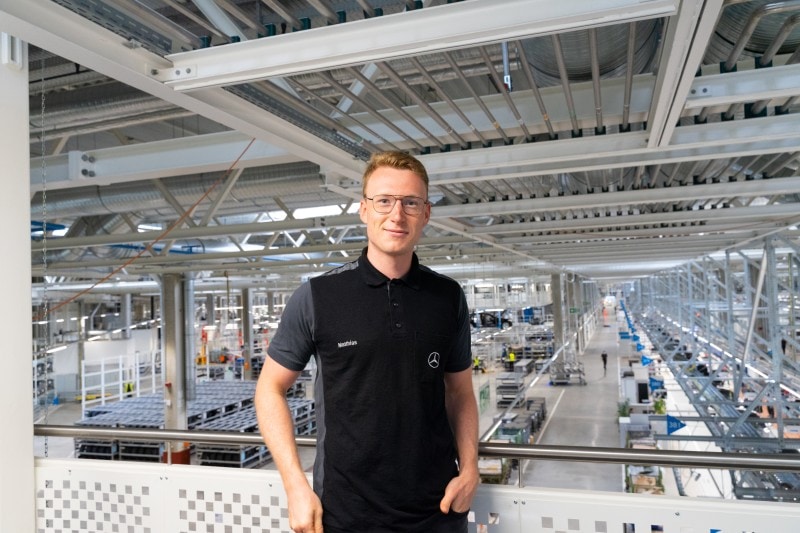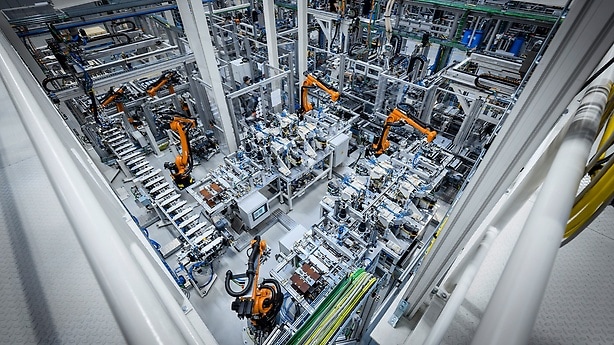What is it like for you to work on a project like Factory 56?
Matthias Geiger: At our high-tech factory, we work on many topics that did not previously exist in logistics. It's a great challenge. And there is a lot of freedom in our work. One of my projects was the transport process of the batteries for the EQS. It is cool to see a project that I helped develop from the first idea become reality - and of course it makes us as the team very proud.
What do your working days look like?
Sven Uffelmann: It always differs. The preparation and planning of Factory 56 took several years. Initially, the focus was on conceptual issues, such as the planning of costs and milestones. During that time, we were often in the office or coordinating with our partners and service providers. All in all, we work together with a number of colleagues from very different trades...
Matthias Geiger: ... and when the start-up phase approaches, as in 2020 for the new S-Class or last year for the EQS, we are on site in the hall almost all the time. Then it is a matter of fine-tuning with our project partners such as the building planners or tradespeople and our service providers. Dealing with people from very different disciplines makes our work very exciting and varied. No two days are the same.
How did you two actually start at Mercedes-Benz?
Sven Uffelmann: I already did an internship during my studies in Logistics at the Mercedes-Benz plant in Bremen and later wrote my final thesis here. I then worked in logistics planning for the C-Class at the Bremen plant. In 2012, my later team leader told me about a logistics project in China. I applied and a few months later I was working as a technical planner in Beijing. That was my entry into the company. After four and a half years in China, I moved to Sindelfingen in 2017 for the planning of Factory 56.
Mr Geiger, what is your story?
Matthias Geiger: In 2018, I completed my Master's degree in Operations Management at the University of Reutlingen. My professor for lean management was involved in setting up the Mercedes-Benz production system. During this time, I was also employed as a working student and since then, the company has not let me go.
And what were your next stations?
Matthias Geiger: After a six-month internship at the then Truck Division in Tokyo, I wrote my final thesis at Mercedes-Benz in Germany and then started the international talent programme. Meanwhile, I was able to gain further exciting insights and project experience. There really are many possibilities and subject areas here.
Finally, a personal question: What is the absolute must-have in your dream office?
Sven Uffelmann: Quite clearly, my colleagues. We are an amazing team and have a lot of fun together. In the past two years, we have mostly worked in our home offices and have only seen each other via video call - this basically works very well, but the personal contact sometimes is simply missing. And what cannot be missing is a coffee machine (laughs). This is important.
Matthias Geiger: I would also like to have a table football game. I learned to appreciate that a lot during my stint in Silicon Valley with the International Talent Programme (laughs).



